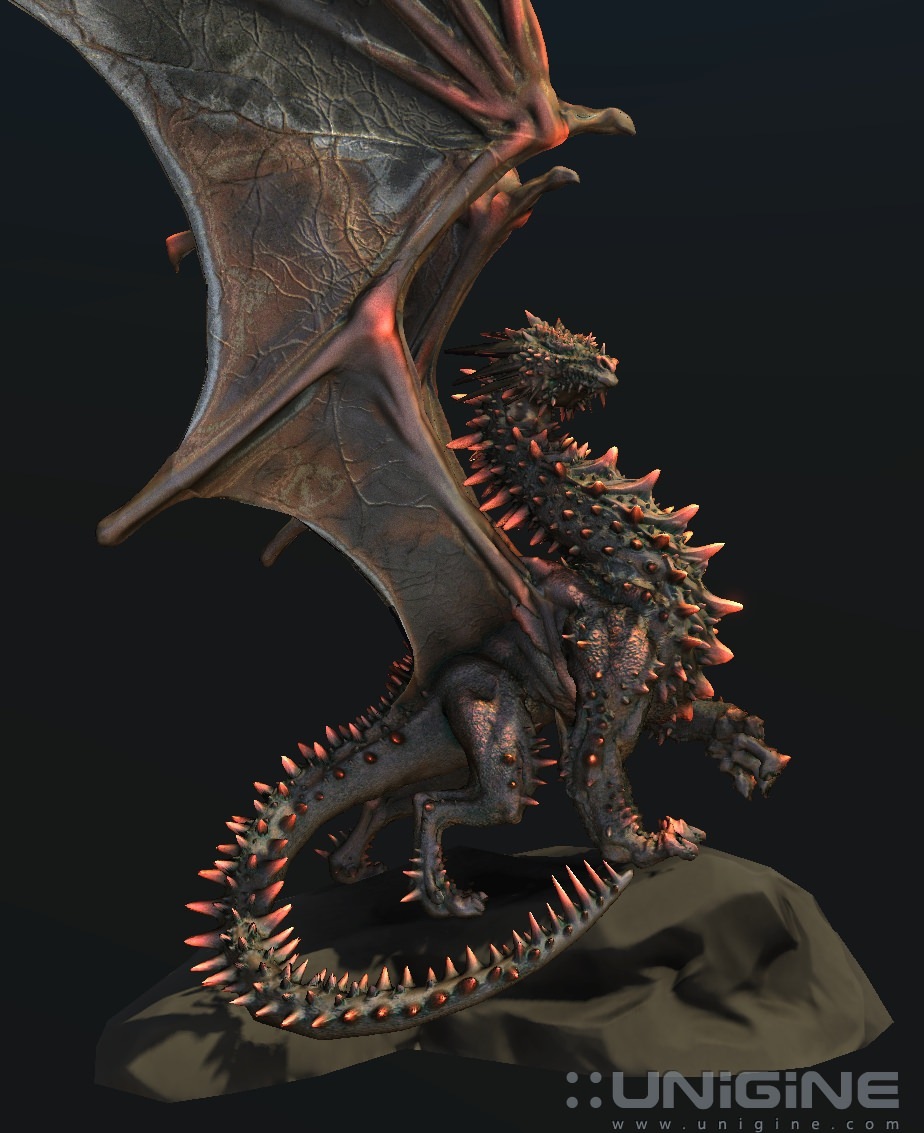Unigine Engine Gets DirectX 11 Into Gear
October 1, 2009 - Unigine Corp. introduces the full support of DirectX 11 features in its top-notch 3D middleware. Updated Unigine engine has successfully incorporated the groundbreaking DirectX 11 capabilities, including the following core features:
- Hardware tessellation
- DirectCompute
- Shader Model 5.0
Hardware tessellation is a scalable technology aimed for automatic subdivision of polygons into smaller and finer pieces, so that developers can gain a more detailed look of their games almost free of charge in terms of performance. Thanks to this procedure, the elaboration of the rendered image finally approaches the boundary of veridical visual perception: the virtual reality is vivified at your fingertips delivering engaging gaming experience. Due to the well-designed DirectX 11 API and extensible architecture of the Unigine engine support of this feature was added in less than a month.

Tessellation opens a whole new road of opportunities, but it is untrodden so far. This technology challenges the artists to approach the task of content creation from a different perspective. Unigine team took a lot of effort scrupulously researching this matter and improving the toolset for easy and trouble-free usage. With Unigine engine enhancing the image quality by means of tessellation is given just the green light.

DirectCompute is a crunch numbers technology designed to deal with heavy computational tasks easily. Some of Unigine postprocesses (including glow, HDR and SSAO) has been migrated to DirectCompute with considerable gain in performance.
The extended set of instructions in Shader Model 5.0 leverages easy creation of complex shader effects for Unigine-based projects. This technology is fully supported now, i.e. all of the six types of shaders are available: vertex, hull, domain, geometry, pixel and compute. SM 5.0 serves as a spring-board for strikingly realistic VFXs reinforcing the feeling of immersion.
"As Unigine is always on the frontier of advanced 3D real-time technologies, we couldn't have missed the next major stage of DirectX development. DirectX 11 unveils a set of breakthrough features both in graphics and GP-GPU fields, and shatters the limits set for PC gaming. Zero-overhead context switching for DirectCompute makes it possible to calculate virtually everything by their means, so I expect the faster physics simulation, cinematic special effects of dramatic impact and breathtaking water simulation to be implemented via this technology. HW tessellation empowers developers to create ultra-realistic scenes complete in every detail with the aid of Unigine engine. I'm anxious to see the brave new titles released basing on DirectX 11." // Alexander Zaprjagaev, CTO of Unigine Corp.
About Unigine Engine
Unigine engine provides photorealistic 3D render, powerful physics module, object-oriented scripting system with a very rich library (more than 3000 methods out-of-the box), full-featured GUI module, sound subsystem, and a set of flexible tools. Efficient and well-architected framework supporting multi-core systems makes Unigine a highly scalable solution, on which multi-platform games with different hardware requirements can be based. Currently both the engine and the toolset are available for Windows and Linux platforms. This feature-rich middleware is successfully used in various VR projects as well as in modern games of different genres.
About Unigine Corp.
Unigine Corp. is an international company focused on top-notch real-time 3D solutions. Main activity of Unigine Corp. is development of Unigine, a cross-platform engine for virtual 3D worlds. Since the project start in 2004, it attracts attention of different companies and groups of independent developers, because Unigine is always on the cutting edge of real-time 3D visualization and physics simulation technologies.
Unigine Corp. is a registered developer of Advanced Micro Devices, Inc. (previously ATI Technologies Inc.), NVIDIA Corporation and Creative Labs Inc. Being a registered developer the company works closely with hardware vendors in order to provide the best level of performance and stability of its products.